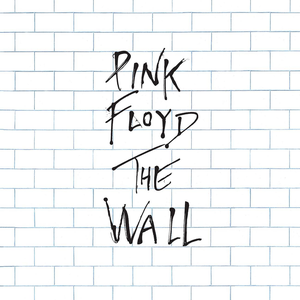Published on Jan 22, 1998
Everyone knows of Pink Floyd's 1979 epic The Wall. It is one of the ten top-selling albums of all times, and three years after its release, was turned into an Oscar-nominated feature film. But the single thing most people think of is the dynamic single, "Another Brick in the Wall (Part 2)," which hit number one in the Billboard charts for several weeks in 1980.
The album brought the term "concept album" to new heights. The idea of a rock album telling a story was nothing new at the time. From Tommy to Hotel California, concept albums had been around for at least a decade. The approach here, however, was radically different in that the songs were coupled with extensive spoken dialogue, and many complex sound effects, in order to enhance the "theater of the mind" concept.
As for the story itself, here is a brief synopsis. Pink is an over-toured, borderline-psychopath rock star. He had a torturous childhood, with his father dying in World War II, his mother being extremely overprotective, and his teachers verbally assaulting him in class every day. He became a sexual-compulsive as an adolescent, and finally hit it big. Now his wife is having an affair, which doesn't account for the numerous ones he has had through the years. He is trapped by his own resentment, and scared of his surroundings.
This is basically the story behind the first disc of the album. Each aspect of the story is told through some very well written songs, and barely audible dialogue. Everyone knows of the massive-hit single, which, for AOR purposes, is usually coupled with "The Happiest Days of Our Lives". Another FM staple from the first disc is "Young Lust," a silly, dirty song, with an adventurous catchy beat.
Pink is really in danger of losing it. He is depressed, and isolated, before going, pardon the term, completely wacko. The most simple solution is to give Mr. Floyd some uppers, which stabilize him, but eventually make him extremely paranoid. He becomes a racist, homophobic, uptight jerk, endangering himself and others, and I don't think Waters had ever even heard of Pat Robinson. He catches himself again, laments death for a while, and eventually becomes his normal, happy self once more, even if he is a little disillusioned.
This may seem outlandish and manipulative, but this just may be how many rock stars feel. The masses can never explain the actions of the musically elite. There is some great music on this disc, however, the most popular tracks being "Run Like Hell," and "Comfortably Numb."
Many fans of the band truly dislike this album. They think it signaled the beginning of the end for Waters-era Floyd. They make a good case, but the album itself is spectacular. It was, however, the first time Floyd wasn't striking new ground thematically. They had already spoken extensively of madness (Dark Side Of The Moon, Wish You Were Here), World War II (Animals, The Final Cut), and drugs (pick an album), and the travails of being a rock star (ditto). They were, however, assimilating it into a aural plethora of all these things rolled into one.
The album is by no means flawless, however, and the voiceovers, (by John Cleese and Toni Tennille, to name a few), may be entertaining the first couple of listens, but are essentially annoying. Also, for a band with generally stellar instrumental tracks, the arrangements here are generally repetitive.
In general, The Wall is a great album at times, and a tepid one at others. It contains some great songs, and some that I guarantee you will skip after the third or fourth listen. In essence this is Pink Floyd as they had never sounded before, and would never sound again. The album encompasses several narrative voices, none of which are familiar. The album is in no way comparable in itself to any other Floyd albums. It's still a great album. It just makes you ask yourself in the long run: "By the way, which one's Pink?"
Yes, it's a silly statement, and, yes, I realize that The Final Cut was not released until 1983, but sometimes the points made by music reviewers must suffer in fact in order to come across. This is a great album which you probably already have, and if you don't, it's definitely worth checking out.
